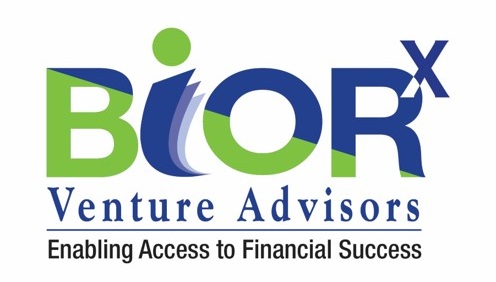By user
THE ART OF BUILDING AN INVESTIBLE BUSINESS: FROM CONCEPT TO CAPITAL
In today’s competitive business landscape, creating a company that attracts investors requires more than just a great idea. It demands a strategic approach, meticulous planning, and a clear understanding of what makes a business truly investible. This article delves into the key components of building an investible business, from the initial ideation process to developing a compelling value proposition that resonates with potential investors.
Investible Businesses are vital to investors because of their growth, profit, and sustainability attributes. They usually have a clear and straightforward business vision, a capable team, a large addressable market, and an offering that solves a relevant problem. It shows effective operational and financial performance, efficiency, and accountability while having clear revenue-generating strategies.
FUNDAMENTAL FUNCTIONS OF INVESTIBLE BUSINESS
Here, we need to know that companies should only perform the primary or fundamental function; for business enterprises, they need to be mindful of all the below functions:
- Regulatory and Legal Compliance: Ensuring that all operations adhere to relevant laws and regulations is non-negotiable. This compliance not only protects the business from legal issues but also demonstrates a commitment to ethical practices.
- Growth Potential: Investors are looking for businesses with the capacity to scale. Providing realistic yet ambitious projections backed by solid market analysis can help showcase your company’s growth trajectory.
- Customer Validation: Nothing speaks louder than satisfied customers. Incorporating real-life examples and testimonials from clients who have benefited from your offering can significantly bolster your case to investors.1
- Transparency: Building trust is crucial when seeking investment. Provide clear, concise, and accurate information about your company’s operations, financials, and challenges.
- Networking: Connect with investors, advisors, and other entrepreneurs to increase brand awareness and reputation.
- Market Need: You should prove that unsuitable consumers are willing to consume your product or use your service and provide market analysis supporting your claims.
- Strong Team: Investors often say they invest in people, not just ideas. Assembling a qualified and diverse team with the skills to execute your business plan effectively is crucial.
IDEATION PROCESS
The first thing founders have to do before looking for funds is undergo a market validation process, create an MVP or Minimum Viable Product (if necessary), and gather feedback from early customers. This first round of seed capital (sometimes bootstrapped) allows for initial testing of the idea’s viability and gives valuable feedback.
- Define your Goals: Many people who are planning to invest in your business want you to tell them what your startup’s goals are. In the development process, it is crucial to enshrine clear objectives so that your growth meets the required goal.
- Research your Market: Closely examine your target market, including who your new customers will be, what they may require to pay for your product/service type, and what competition you are likely to face. That knowledge will assist you in trying to fit the idea into established market traits.
- Brainstorm and Validate: Generate ideas and quickly test them with potential customers. Gather feedback on interest levels, pricing, and suggested improvements to refine your concept.
- Iterate and Refine: Use the insights gained from customer feedback and industry experts to continuously improve your product or service. This iterative process ensures your offering evolves to meet market demands and quality standards.
- Create a Prototype: Develop a minimum viable product (MVP) that demonstrates your value proposition. This tangible representation of your idea can be crucial in attracting early adopters and investors.
- Seek Expert Advice: Seek advice from other experienced professionals in the same business line you intend to establish. Helps pinpoint specific areas where you should expect a certain level of difficulty or areas where the founder can improve.
DEVELOPING A CLEAR VALUE PROPOSITION
The value proposition acts like a link between your purely developed concept and the potential investors you will approach. A compelling value proposition should:
- Appeal to Donors: While financial returns are important, many investors are also motivated by the potential for personal connection or social impact. Tailor your pitch to resonate with these deeper motivations.
- State your Ask: Avoid confusing potential donors by phrasing your requests for support clearly and distinctly. This includes stating the precise amount of money that will be required and how it will be utilized.
- Build Trust: Share success stories, testimonials, and the impact you created to assure potential donors that the money they invested will transform the lives of the people benefitting from the organization.
- Unique Impact: As much as you would like to attract new donors, remember to ensure the current ones understand why they should continue supporting your organization. Emphasize previous successes, relevant experience, and the precise use of their contribution.
LIFESTYLE BUSINESS VS FUNDABLE BUSINESS
It’s important to distinguish between lifestyle businesses and fundable businesses, as they have different goals, structures, and potential for investment:
Lifestyle Businesses simply refer to companies that go into business just to gain a lifestyle they want to lead. It’s the fact that they want to make enough money so that they can afford to live the kind of life they desire without necessarily aspiring to make it big. These businesses are generally small and often operated by sole traders or a small group of people. They may not be able to borrow money from multiple sources. Lifestyle businesses appear as personal coaching services, local café, online businesses, etc.
Fundable Business, also known as a venture, is when an individual starts a company to fill a gap in the market. The main idea here is to make people invest their money in the business so that the company grows. Fundable start-ups tend to have a fresh and original concept and exist in large markets. They ordinarily seek cash from the general public, from people of high stature, or perhaps an investment company. Fundable businesses may include a new tech company, a resident biotech firm creating new therapeutic forms, or a software company offering a new application.
CONCLUSION
Creating an investible business requires a delicate balance of vision, strategy, and execution. By focusing on developing a strong value proposition, validating your concept through rigorous market testing, and building a capable team, you can increase your chances of attracting investor interest.
Remember that the journey from idea to investible business is often nonlinear and requires persistence, adaptability, and a willingness to learn from failures. By embracing these challenges and continuously refining your approach, you can build a foundation for long-term success that appeals to both investors and customers alike.
Ultimately, the most investible businesses are those that not only promise financial returns but also demonstrate the potential to create lasting value in the market and society. By aligning your business with these principles, you’ll be well-positioned to secure the capital and support needed to turn your entrepreneurial vision into reality.



